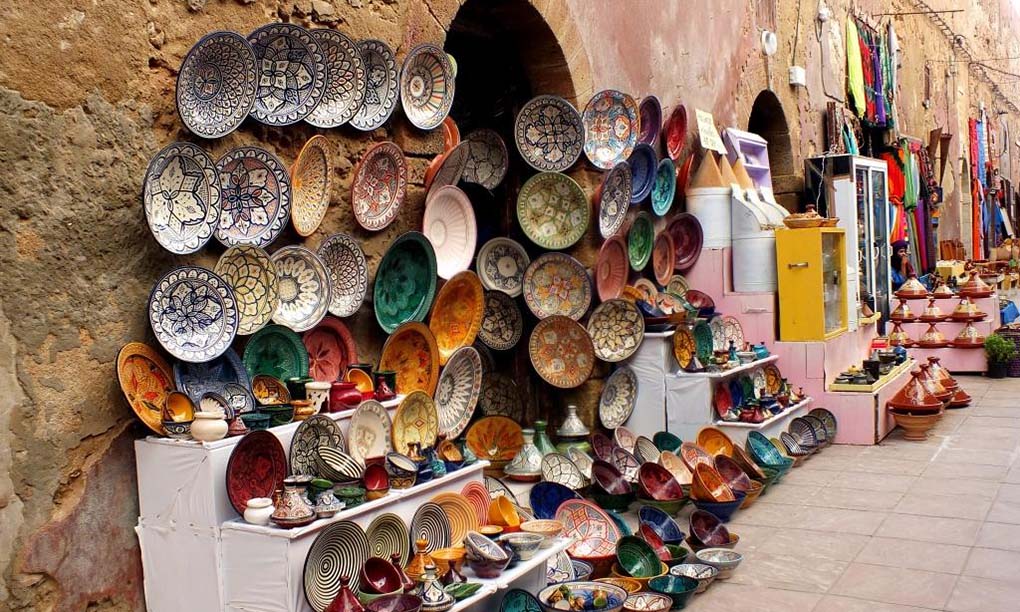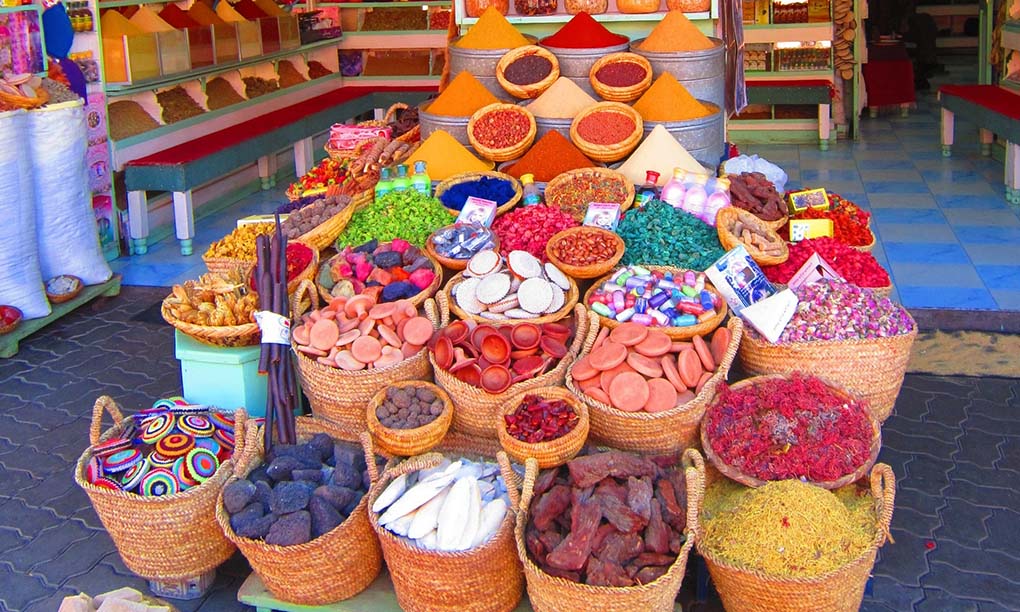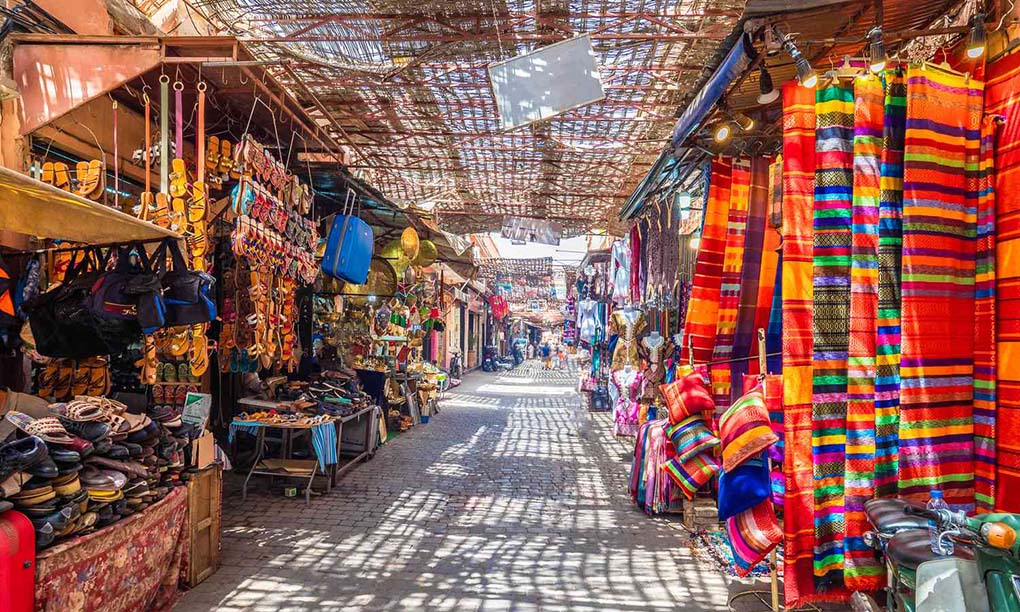Morocco, a land of rich culture and vibrant traditions, beckons travelers with its captivating markets, or “souks,” where shopping is a unique cultural journey.
The Enchantment of Moroccan Markets

A Kaleidoscope of Handicrafts
Moroccan markets are a sensory overload of colors and craftsmanship. They offer an array of intricate handicrafts, from beautifully designed ceramics to ornate metalwork. Each item tells a tale of Morocco’s rich artisanal heritage, and every piece is a testament to the talent and dedication of local artisans.
The Allure of Moroccan Carpets
Moroccan carpets, often referred to as “kilims,” are world-renowned for their beauty and artistry. Woven by hand, these carpets come in a breathtaking array of designs and colors. They are not merely floor coverings; they are pieces of art that infuse warmth and character into any space.
Spice Bazaars: A Fragrant Odyssey

Morocco’s spice markets are a sensory delight. The air is filled with the tantalizing aromas of spices like cumin, saffron, and paprika. Vendors expertly blend and package these aromatic treasures, offering you the perfect souvenir to bring home. Moroccan spices not only elevate your culinary experiences but also serve as a fragrant memento of your journey.
Navigating Moroccan Markets
Souk Etiquette
Shopping in Moroccan markets is a cultural immersion, and adhering to local etiquette enhances your experience. Here are some tips for navigating the souks:
- Embrace the Art of Haggling: Bargaining is an integral part of Moroccan market culture. Vendors often start with higher prices, so don’t hesitate to negotiate politely.
- Respect Personal Space: The markets can get crowded, so be mindful of personal space and exercise patience as you navigate through the bustling lanes.
- Seek Permission for Photos: If you wish to photograph a vendor or their merchandise, it’s considerate to ask for permission first.
- Dress Modestly: Morocco is a conservative country, so dressing modestly when visiting markets is respectful. Cover your shoulders and knees, particularly if you plan to visit religious sites.
The Fine Art of Haggling
Haggling in Moroccan markets is both an art and a social interaction. Here are some haggling tips for a successful shopping experience:
- Commence with a Low Offer: Initiate your negotiation with a price substantially lower than the vendor’s initial quote. This sets the stage for a friendly exchange.
- Maintain Politeness: While bargaining, always maintain a courteous and amicable demeanor. It’s a cultural exchange, not a confrontation.
- Be Prepared to Walk Away: If you can’t reach an agreement on the price, be ready to walk away. Sometimes, this can lead to the vendor offering a lower price to close the deal.
- Know the Value: Conduct some research to understand the approximate value of the item you want to purchase. This knowledge can empower you during negotiations.
Moroccan Market Gems
Marrakech Souks
Marrakech is a shopper’s paradise, with its winding alleys filled with treasures. The Medina, Marrakech’s historic district, is home to the famous Jemaa el-Fnaa square and a plethora of souks specializing in everything from leather goods to spices.
Fes Medina
The Fes Medina, a UNESCO World Heritage site, is a hub of traditional Moroccan craftsmanship. Fes is renowned for its leatherwork, and the market’s narrow streets are a captivating maze of stalls and shops.
Chefchaouen Market
Nestled in the Rif Mountains, Chefchaouen is famous for its striking blue buildings and its charming market. Here, you can find handmade rugs, local crafts, and the sweet scent of Moroccan spices.
Exploring Moroccan markets is a journey that transcends shopping; it’s an immersive cultural experience. It’s an opportunity to connect with local artisans, appreciate centuries-old traditions, and acquire unique treasures that will forever remind you of Morocco’s allure.
Tags: Handicrafts, Moroccan, Spice